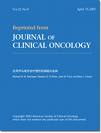 A recent article published in the Journal of Clinical Oncology used research from the Childhood Cancer Survivor Study (CCSS) to facilitate research on long-term survivors of cancer diagnosed in childhood and adolescence. Specifically, the authors retrospectively looked at the fertility of male survivors of childhood cancer and the results are astonishing.
A recent article published in the Journal of Clinical Oncology used research from the Childhood Cancer Survivor Study (CCSS) to facilitate research on long-term survivors of cancer diagnosed in childhood and adolescence. Specifically, the authors retrospectively looked at the fertility of male survivors of childhood cancer and the results are astonishing.
With a relatively large sample size (n=6,224) for cancer survivors and comparing it to the survivor’s male siblings (n=1,292), the authors were able to gain an insight into the long-term effects of cancer and cancer treatments. Compared with the siblings, survivors were approximately half as likely to sire a pregnancy. In the treatment models, prior radiation therapy to the testes (>7.5 Gy), high doses of alkylating chemotherapy agents, treatment with procarbazine, or high doses of cyclophosphamide were the major factors that decreased the chances of a cancer survivor successfully siring a pregnancy.
This study simply demonstrates that the fertility of male childhood cancer survivors is impaired. We can intervene with quick sperm banking for most of these patients to prevent the heartache that can go along with infertility later in life. For those patients who aren’t able to bank sperm, testicular tissue cryopreservation always remains an open option.


 By: Kristin N Smith -
By: Kristin N Smith -